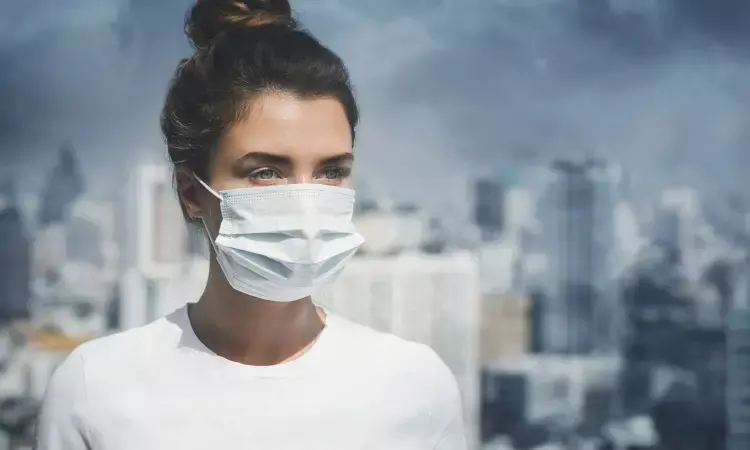- Home
- Medical news & Guidelines
- Anesthesiology
- Cardiology and CTVS
- Critical Care
- Dentistry
- Dermatology
- Diabetes and Endocrinology
- ENT
- Gastroenterology
- Medicine
- Nephrology
- Neurology
- Obstretics-Gynaecology
- Oncology
- Ophthalmology
- Orthopaedics
- Pediatrics-Neonatology
- Psychiatry
- Pulmonology
- Radiology
- Surgery
- Urology
- Laboratory Medicine
- Diet
- Nursing
- Paramedical
- Physiotherapy
- Health news
- Fact Check
- Bone Health Fact Check
- Brain Health Fact Check
- Cancer Related Fact Check
- Child Care Fact Check
- Dental and oral health fact check
- Diabetes and metabolic health fact check
- Diet and Nutrition Fact Check
- Eye and ENT Care Fact Check
- Fitness fact check
- Gut health fact check
- Heart health fact check
- Kidney health fact check
- Medical education fact check
- Men's health fact check
- Respiratory fact check
- Skin and hair care fact check
- Vaccine and Immunization fact check
- Women's health fact check
- AYUSH
- State News
- Andaman and Nicobar Islands
- Andhra Pradesh
- Arunachal Pradesh
- Assam
- Bihar
- Chandigarh
- Chattisgarh
- Dadra and Nagar Haveli
- Daman and Diu
- Delhi
- Goa
- Gujarat
- Haryana
- Himachal Pradesh
- Jammu & Kashmir
- Jharkhand
- Karnataka
- Kerala
- Ladakh
- Lakshadweep
- Madhya Pradesh
- Maharashtra
- Manipur
- Meghalaya
- Mizoram
- Nagaland
- Odisha
- Puducherry
- Punjab
- Rajasthan
- Sikkim
- Tamil Nadu
- Telangana
- Tripura
- Uttar Pradesh
- Uttrakhand
- West Bengal
- Medical Education
- Industry
Long-term exposure to PM2.5 increases risk of long COVID in young adults: The Lancet

Sweden: A new study published in Lancet Regional health- Europe conducted by Swedish researchers has found that young adults who are exposed to long-term air pollution, specifically particulate matter (PM2.5), may have an increased risk of developing Long COVID.
Long COVID is a condition where individuals experience persistent symptoms after being infected with SARS-CoV-2 for two months or longer.
The study used data from the BAMSE cohort, which included 753 participants who had contracted SARS-CoV-2. Of those participants, 116 reported experiencing long COVID symptoms, which included altered sense of smell or taste, dyspnea (difficulty breathing), and fatigue.
The researchers estimated each participant's exposure to air pollution by analyzing levels of PM2.5, PM10, black carbon (BC), and nitrogen oxides (NOx) at their individual-level addresses through dispersion modeling. There were 753 participants with SARS-CoV-2 infection in total, with 116 (15.4%) reporting long COVID. The most common symptoms encountered among the participants were altered smell/taste, dyspnea, and fatigue.
The study concluded with the following findings:
- 1.The study found that the adjusted odds ratios for PM2.5 per IQR (Interquartile range) increase were 1.28 for long COVID, 1.65 for dyspnea symptoms, and 1.29 for altered smell/taste.
- 2.Positive associations were also found for the other air pollutants, and these associations tended to be stronger among participants with asthma and those who contracted COVID-19 in 2020 rather than in 2021.
The lead author Dr. Zhebin Yu added that “Ambient long-term PM2.5 exposure may affect the risk of long COVID in young adults, further emphasizing the importance of improving air quality. This study is significant because it provides insight into the underlying risk factors for long COVID and highlights the need for efforts to continuously improve air quality.”
The findings of this study will be important for policymakers and public health officials, who can use this information to implement policies and interventions to improve air quality and reduce the risk of long COVID. The study also emphasizes the importance of taking steps to protect oneself from exposure to air pollution, particularly for individuals who are at a higher risk of developing long COVID.
Reference:
Yu Z, Ekström S, Bellander T, et al. Ambient air pollution exposure linked to long COVID among young adults: a nested survey in a population-based cohort in Sweden. The Lancet Regional Health - Europe. 2023; 100608 doi: https://doi.org/10. 1016/j.lanepe.2023. 100608
Dr. Mahalakshmi Sivashankaran joined Medical Dialogues as an Intern in 2023. She is a BDS graduate from Manipal College of Dental Sciences, Mangalore Batch 2022, and worked as a Junior Resident at VMMC & Safdarjung Hospital at the Department of Dental Surgery till January 2023. She has completed a Diploma in Executive Healthcare management from the Loyola Institute of Business Administration, developing skills in Healthcare Management and Administration. She covers several medical specialties including Dental, ENT, Diagnostics, Pharmacology, Neurology, and Cardiology.
Dr Kamal Kant Kohli-MBBS, DTCD- a chest specialist with more than 30 years of practice and a flair for writing clinical articles, Dr Kamal Kant Kohli joined Medical Dialogues as a Chief Editor of Medical News. Besides writing articles, as an editor, he proofreads and verifies all the medical content published on Medical Dialogues including those coming from journals, studies,medical conferences,guidelines etc. Email: drkohli@medicaldialogues.in. Contact no. 011-43720751


